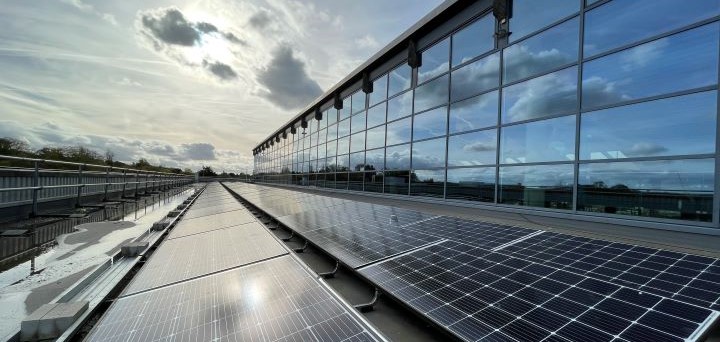The UK Infrastructure Bank (UKIB) will provide a £17m loan facility to West Suffolk Council to deliver a programme of net zero projects. These include building decarbonisation, solar installations, and electric vehicle fleet upgrades.
The loan is intended to help West Suffolk Council decarbonise both its own operations and those of its business community, using a portfolio model that UKIB said had the potential to be replicated by other local authorities across the UK.
The portfolio approach will enable West Suffolk to finance a number of smaller net zero interventions below UKIB’s £5m loan size into one proposition that the policy bank said were “collectively both financially sustainable and environmentally impactful”.

UKIB’s local authority function offers a cost finance for local authority infrastructure projects at gilts + 40bps.
The new financing will support the expansion of West Suffolk’s Solar for Business scheme, which has so far deployed £7.5m and 8.7MW of solar since 2012. Through the net zero fund, the council will roll out the scheme to more businesses in the local area, providing and installing rooftop solar to deliver “low cost, low carbon” electricity.
The funds will also support a range of projects to help decarbonise the council’s estate by improving the energy efficiency of its buildings through measures including the installation of heat pumps, better insulation and the incorporation of renewable energy.
West Suffolk said it would also use the funding to cover the cost of the next phase of its fleet transition to electric vehicles, to decarbonise community assets, and to support the net zero elements of agreed capital development projects.
Lorna Pimlott, UK Infrastructure Bank managing director, local authority advisory & lending, said West Suffolk’s net zero fund was “an excellent example of how a local authority can package together a number of smaller net zero interventions into one, bankable proposition”.
She commented: “[UKIB’s] lower cost of finance together with the council’s innovative portfolio approach, in which it leverages the surpluses from the Solar for Business scheme and energy efficiency projects to support other net zero initiatives, has addressed many of the barriers to investment that can prevent progress.
“This model has high potential for replicability, and we hope to work with other authorities to adopt a similar blueprint to deliver their net zero ambitions.”

Diane Hind, cabinet member for West Suffolk Council, said the agreement with UKIB would allow the authority to “continue to drive its package of plans to help achieve our ambition for net zero carbon emissions by 2030 and towards delivering our strategic priority for environmental resilience”.
Hind added: “Our net zero fund is about further improving air quality for the benefit of our residents’ health across West Suffolk by driving forward our plans for better electric vehicle infrastructure. And it also means we can power on with our work to support businesses with the free supply and installation of solar panels on roofs, cutting their carbon emissions, saving on their energy costs and contributing income to support the council’s services to our communities across West Suffolk.”
Noting that decarbonising the power sector by 2030 is a key mission for UK government, Darren Jones, chief secretary to the Treasury, said the latest UKIB deal for West Suffolk “is a good example of how local authorities can contribute to our national mission, create jobs and support the transition to net zero”.
UKIB’s Lorna Pimlott puts the case for how a portfolio approach to packaging smaller net zero investments could be key for many local authorities to drive forward their ambitions in an opinion piece you can read here.
—————
FREE bi-weekly newsletters
Subscribe to Room151 Newsletters
Follow us on LinkedIn
Follow us here
Monthly Online Treasury Briefing
Sign up here with a .gov.uk email address
Room151 Webinars
Visit the Room151 channel













